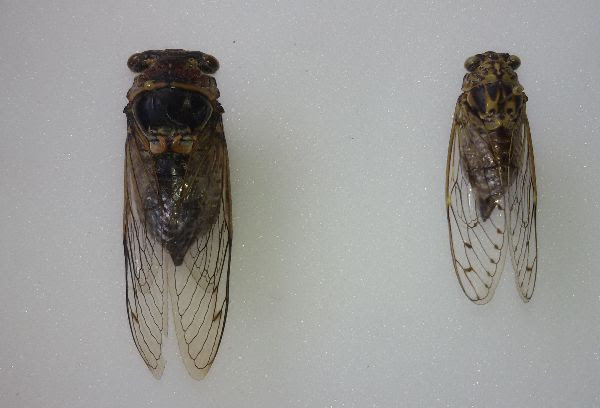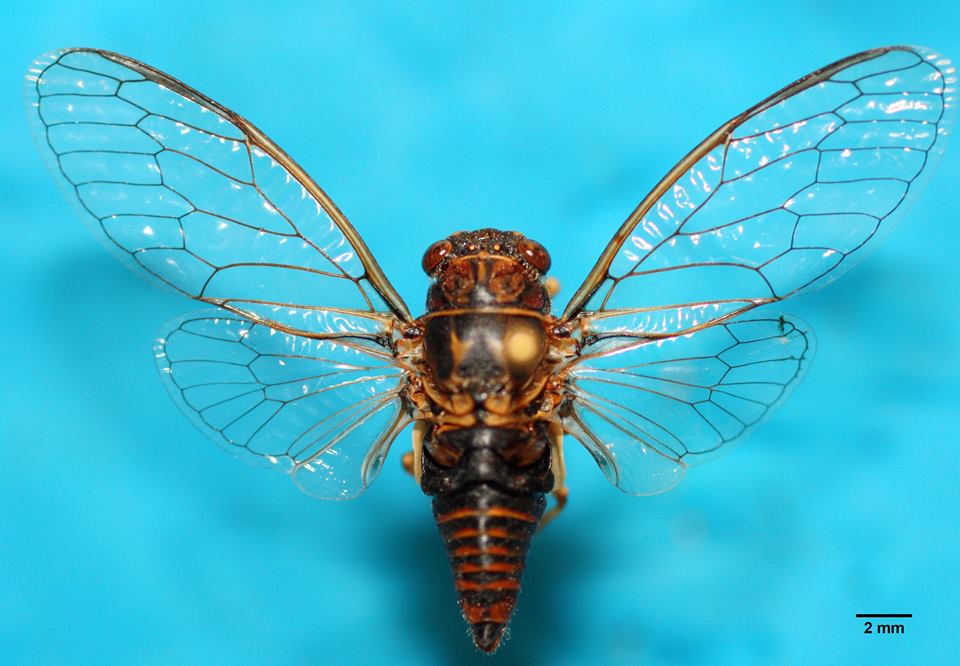Until September 30, a team of researchers from the Faculty of Sciences of the University of Lisbon challenges citizens to be aware of the sounds of cicadas: by recording the sound of their singing with their mobile phone, recording their GPS location and sharing this data with researchers, it helps them create an updated map of the geographic distribution of the 13 species of cicadas that exist in Portugal.
Cicadas are insects known for their characteristic singing in summer. In fact, only cicada males sing, to attract females to mate for the few weeks of life that they have left as adults – as cicadas spend several years in the ground. develop – and its song is specific to each species, which makes it easier to identify the species that exist in a region.
In Portugal, there are 13 species of cicadas – only in mainland territory, there are no cicadas in the Azores and Madeira – but little is known about their current geographic distribution in our country.
It is with this objective that the project arises Cicadas de Portugal – Singing Insects, that challenges citizens to pay attention to the song of these species, in their day-to-day or on vacation in Portugal.
“The last cicada census in Portugal, which confirmed the presence of 13 species in our country, took place in 2004 – and some of these species are extremely rare. Thus, with this project, we intend to involve citizens in monitoring cicada populations in Portugal and, through these records, assess the vulnerability of these species to the risk of extinction”, he explains Paula Simões, responsible for the project and researcher of the Center for Ecology, Evolution and Environmental Change – cE3c, na Faculty of Sciences of the University of Lisbon.

One of the species that concerns researchers is the blind-ear (plebeju lyrists). It is the largest species of cicada existing in Portugal – it is about 5 cm long and its singing is reminiscent of the noise of a pressure cooker (can be seen and heard here) – and it is one of the species that is in sharp decline: once abundant in the central region of the country, now it is rare to hear the singing of the blind.
“The decline of the blind region may be related to the loss of habitat caused by deforestation, urbanization and intensive agriculture. But other cicada species are still abundant in the central zone, which makes us suspect that other factors may also be contributing to the decline of the grocer. Is this species more sensitive to the increase in average temperature that has been observed in recent decades? For most cicada species, the warmer the better, but the stingray does not occur in southern Portugal and Spain, for example, where average temperatures are higher in our country”, he explains Vera Nunes, one of the project's investigators and researcher of the Center for Ecology, Evolution and Environmental Change – cE3c, at the Faculty of Sciences of the University of Lisbon.
It is to answer this and other questions that the project Cigarras de Portugal – Insects Cantores is underway. Everyone can contribute: when you hear the cicadas, you just need to record the sound with your mobile phone, record the date and geographic location – if possible with GPS coordinates – and submit this data on the project's Facebook page or on the platform Biodiversity4All. The data collected will help researchers to gather more accurate information about the distribution areas of the 13 species of cicadas existing in Portugal.
“The cicadas tend to cluster in small nuclei, which explains why in the same pine forest we can hear cicadas at one point and not hear them 500m further on. In the case of the rarest species, you need to be in the right place at the right time to detect them, which is sometimes similar to looking for a needle in a haystack. That's why everyone's contribution is very important!” concludes Paula Simões.
The project Cicadas de Portugal – Singing Insects arises within the scope of the creation of the first Red List of Invertebrates in Portugal, currently in progress.
Author CE3c Communication Office – Center for Ecology, Evolution and Environmental Change
Science in the Regional Press – Ciência Viva



















Comments